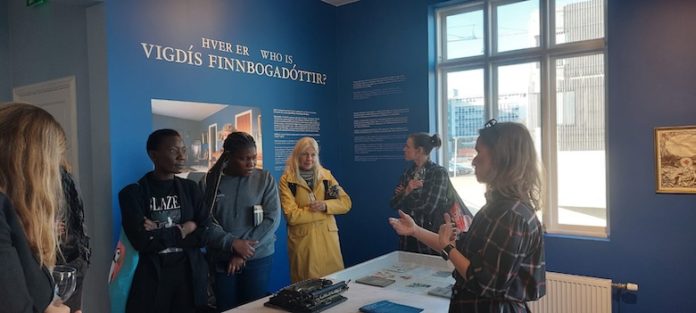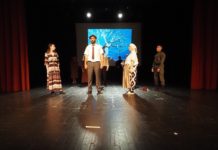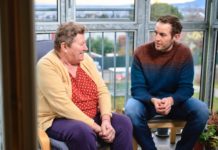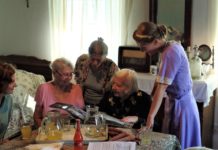The Vigdís Finnbogadóttir Institute of Foreign Languages is part of the University of Iceland in Reykjavik. It was called the “House of Vigdis” (Veröld – the house of Vigdís) after its founder, a woman who was the first democratically elected president in the world, and who is still remembered today for her strong advocacy of women’s rights and environmental issues. The institute works in cooperation with the Icelandic government and UNESCO. It holds classes, conducts research, and hosts various other academic and scientific events related to foreign languages and cultures. Next to the university building, there is also a smaller one where a memorial center has been opened, dedicated to the life and work of this strong woman who left a deep mark in Icelandic history.
Vigdis was born in 1930 in Reykjavik. Her father was an engineer and her mother was a nurse. After her younger brother Þorvaldur tragically drowned, Vigdís received her parents’ support to pursue her studies in English and French literature, though they were filled with sadness and concern. She began her education at the University of Grenoble and later continued at the Sorbonne. Even during her student days, theater and acting were her great loves. In 1954, she became a co-founder of a theater group where she also acted. In 1957, she studied theater history at the University of Copenhagen, and in 1972 she was appointed artistic director of the Reykjavík Theater Company, where she also directed plays.
In the 1960s, her activist work was in full swing. She participated in protests against the United States military presence in Iceland. She also supported the strong feminist movement of the 1970s in Iceland, including the historic women’s strike in 1975, when women across Iceland stopped work to protest inequality in wages and positions. With her support, she bolstered environmental movements and initiatives, which eventually led to concrete actions such as Iceland’s reforestation efforts to combat soil erosion and preserve the fertile topsoil. She got divorced after nine years of marriage, in 1963. By adopting her daughter in 1972, she became the first single woman in Iceland to do so. Her victory in the 1980 presidential election was partly the result of strong support from the women’s movement. She held this highest position in the country for 16 years, until 1996. That year she founded the Council of Women World Leaders, and the following year she was elected the first president of the World Commission on the Ethics in Scientific Knowledge and Technology. In 1998, she was named a UNESCO Goodwill Ambassador for languages.
Vigdís Finnbogadóttir has also been known for her passion for education, especially learning foreign languages and culture. Thus, in her youth, she worked as a tourist guide during the summer and later became the director of the Icelandic Tourist Bureau. She also worked as a French language teacher at several colleges. Vigdís Finnbogadóttir is a humanist. In her thoughts, worldview, and actions, she has always prioritized human dignity, potential, and capability. She believes that education, ethics, freedom, and individual creativity are fundamental conditions for the advancement of all citizens. In doing so, she has not been referring only to Icelanders, but also to all immigrants who, by living and working in Iceland, contribute to the development of society. As expressed in her words: Let’s not forget that we are descendants of refugees. Therefore, it is in our best interest to welcome the people who come here with open arms and hearts full of understanding.
Icelanders still deeply respect the approach of understanding and tolerance towards others and do not turn a blind eye to prejudice, racism, and xenophobia. Education and fostering of multiculturalism in all segments of expression, for example, in art, music, literature, and cuisine, are perceived as a tool for acquiring knowledge and overcoming them. In this context, the Language Institute that proudly bears her name encourages and promotes the research and teaching of many other languages, in addition to Icelandic, because language is a fundamental part of the identity of every human being, or as Vigdís says: Language preserves the wealth of memories, providing us with words to express your hopes and dreams.












